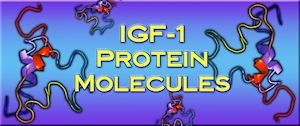Introduction
Secondary hypogonadism, characterized by low testosterone levels due to a dysfunction in the hypothalamic-pituitary axis, has been increasingly recognized as a significant health concern among American males. Recent research has begun to explore the association between this condition and various hematological disorders, particularly anemia. This article delves into a prospective study that examines the intricate relationship between hormonal levels and hematological parameters, shedding light on the potential implications for male health.
Understanding Secondary Hypogonadism
Secondary hypogonadism arises when the pituitary gland fails to produce sufficient luteinizing hormone (LH) and follicle-stimulating hormone (FSH), which are essential for stimulating testosterone production in the testes. This condition can be triggered by a variety of factors, including obesity, chronic illnesses, and certain medications. The resultant low testosterone levels can lead to a myriad of symptoms, ranging from decreased libido and erectile dysfunction to fatigue and mood disturbances.
The Connection to Anemia and Blood Disorders
Anemia, a condition marked by a deficiency of red blood cells or hemoglobin, has been observed to occur more frequently in men with secondary hypogonadism. The prospective study in question meticulously analyzed the hematological profiles of American males diagnosed with this hormonal disorder. The findings suggest that the reduced testosterone levels may contribute to diminished erythropoiesis, the process of red blood cell production. This is likely due to testosterone's role in stimulating erythropoietin, a hormone that regulates red blood cell production in the bone marrow.
Moreover, the study highlighted a potential association between secondary hypogonadism and other blood disorders, such as thrombocytopenia and leukopenia. These conditions, characterized by low platelet and white blood cell counts, respectively, could further complicate the health landscape for affected individuals. The research underscores the importance of comprehensive hematological assessments in men with secondary hypogonadism to identify and manage these concurrent conditions effectively.
Clinical Implications and Management Strategies
The implications of these findings are significant for clinical practice. Healthcare providers must be vigilant in screening for anemia and other blood disorders in men with secondary hypogonadism. Routine monitoring of hematological parameters, alongside hormonal assessments, can facilitate early detection and intervention, potentially mitigating the severity of these conditions.
Management strategies for secondary hypogonadism and its associated hematological disorders should be multifaceted. Testosterone replacement therapy (TRT) is often considered to address the hormonal imbalance, but its impact on hematological parameters requires careful consideration. While TRT may improve anemia by boosting erythropoiesis, it can also lead to polycythemia, a condition characterized by an excess of red blood cells, which necessitates close monitoring.
Additionally, addressing the underlying causes of secondary hypogonadism, such as obesity or chronic illnesses, is crucial. Lifestyle modifications, including diet and exercise, can play a pivotal role in improving overall health and potentially reversing the hormonal and hematological abnormalities.
Future Research Directions
The study opens up several avenues for future research. Longitudinal studies are needed to better understand the long-term effects of secondary hypogonadism on hematological health. Investigating the molecular mechanisms underlying the relationship between testosterone and erythropoiesis could also provide valuable insights, potentially leading to targeted therapies.
Furthermore, exploring the impact of secondary hypogonadism on other aspects of male health, such as cardiovascular and metabolic function, could broaden our understanding of this complex condition. Collaborative efforts between endocrinologists and hematologists will be essential in advancing this field and improving patient outcomes.
Conclusion
The prospective study examining the association between secondary hypogonadism, anemia, and blood disorders in American males highlights a critical intersection of hormonal and hematological health. As we continue to unravel the intricacies of this relationship, it is imperative that healthcare providers remain attuned to the potential hematological implications of secondary hypogonadism. By integrating comprehensive assessments and tailored management strategies, we can enhance the well-being of affected individuals and pave the way for future advancements in this important area of men's health.
Contact Us For A Fast And Professional Response

- Secondary Hypogonadism: Cardiovascular Risks and Management Strategies for American Men [Last Updated On: March 5th, 2025] [Originally Added On: March 5th, 2025]
- Secondary Hypogonadism and Sleep: Impacts and Management Strategies for American Men [Last Updated On: March 17th, 2025] [Originally Added On: March 17th, 2025]
- Secondary Hypogonadism and Energy: Impact and Management in American Males [Last Updated On: March 18th, 2025] [Originally Added On: March 18th, 2025]
- Genetic Factors in Secondary Hypogonadism: Impact and Implications for American Males [Last Updated On: March 19th, 2025] [Originally Added On: March 19th, 2025]
- Secondary Hypogonadism in American Men: Symptoms, Risks, and Management Strategies [Last Updated On: March 19th, 2025] [Originally Added On: March 19th, 2025]
- Chronic Stress and Secondary Hypogonadism in American Males: A Comprehensive Overview [Last Updated On: March 20th, 2025] [Originally Added On: March 20th, 2025]
- Secondary Hypogonadism: Impacts on Body Composition in American Men [Last Updated On: March 20th, 2025] [Originally Added On: March 20th, 2025]
- Secondary Hypogonadism's Impact on Prostate Health: Management and Monitoring Strategies [Last Updated On: March 20th, 2025] [Originally Added On: March 20th, 2025]
- Secondary Hypogonadism: Impact on Cognitive Health and Management Strategies [Last Updated On: March 20th, 2025] [Originally Added On: March 20th, 2025]
- Exercise as a Key Strategy in Managing Secondary Hypogonadism in American Males [Last Updated On: March 21st, 2025] [Originally Added On: March 21st, 2025]
- Managing Secondary Hypogonadism: The Vital Role of Comprehensive Support Systems [Last Updated On: March 21st, 2025] [Originally Added On: March 21st, 2025]
- Psychological Impacts of Secondary Hypogonadism: Mood, Self-Esteem, and Cognitive Effects [Last Updated On: March 22nd, 2025] [Originally Added On: March 22nd, 2025]
- Secondary Hypogonadism in American Males: Impacts and Management of Hair Loss [Last Updated On: March 22nd, 2025] [Originally Added On: March 22nd, 2025]
- Environmental Factors and Preventive Measures for Secondary Hypogonadism in American Men [Last Updated On: March 22nd, 2025] [Originally Added On: March 22nd, 2025]
- Secondary Hypogonadism in American Males: Causes, Symptoms, and Management Strategies [Last Updated On: March 22nd, 2025] [Originally Added On: March 22nd, 2025]
- Secondary Hypogonadism: Impacts on Skin Health and Treatment Options in American Men [Last Updated On: March 23rd, 2025] [Originally Added On: March 23rd, 2025]
- Secondary Hypogonadism in American Males: Symptoms, Diagnosis, and Management Strategies [Last Updated On: March 23rd, 2025] [Originally Added On: March 23rd, 2025]
- Secondary Hypogonadism: Impact on Physical Performance in American Men [Last Updated On: March 23rd, 2025] [Originally Added On: March 23rd, 2025]
- Secondary Hypogonadism and Anemia: Understanding the Link and Managing Health [Last Updated On: March 24th, 2025] [Originally Added On: March 24th, 2025]
- Secondary Hypogonadism and Mood Disorders: Exploring Links and Treatment in American Men [Last Updated On: March 24th, 2025] [Originally Added On: March 24th, 2025]
- Secondary Hypogonadism in American Males: Impact and Importance of Mental Health Support [Last Updated On: March 24th, 2025] [Originally Added On: March 24th, 2025]
- Secondary Hypogonadism in American Men: Symptoms, Diagnosis, and Management Strategies [Last Updated On: March 24th, 2025] [Originally Added On: March 24th, 2025]
- Secondary Hypogonadism and Heart Disease: Risks, Symptoms, and Management in American Males [Last Updated On: March 24th, 2025] [Originally Added On: March 24th, 2025]
- Lifestyle Impact on Secondary Hypogonadism in American Males: Prevention and Management [Last Updated On: March 25th, 2025] [Originally Added On: March 25th, 2025]
- Secondary Hypogonadism: Understanding Its Profound Social Impact on American Men [Last Updated On: March 25th, 2025] [Originally Added On: March 25th, 2025]
- Secondary Hypogonadism: Impact on Libido and Treatment Options for American Males [Last Updated On: March 25th, 2025] [Originally Added On: March 25th, 2025]
- Secondary Hypogonadism and Diabetes: Insights and Management for American Men [Last Updated On: March 25th, 2025] [Originally Added On: March 25th, 2025]
- Secondary Hypogonadism: Impacts on Kidney Function and Management Strategies for American Males [Last Updated On: March 25th, 2025] [Originally Added On: March 25th, 2025]
- Sleep Disorders and Secondary Hypogonadism: Mechanisms, Impacts, and Management in American Men [Last Updated On: March 25th, 2025] [Originally Added On: March 25th, 2025]
- Secondary Hypogonadism's Impact on Muscle Strength in American Men: Diagnosis and Treatment [Last Updated On: March 25th, 2025] [Originally Added On: March 25th, 2025]
- Managing Secondary Hypogonadism: Symptoms, Diagnosis, and Treatment Strategies for American Males [Last Updated On: March 25th, 2025] [Originally Added On: March 25th, 2025]
- Exploring Alternatives to TRT for Secondary Hypogonadism Management [Last Updated On: March 25th, 2025] [Originally Added On: March 25th, 2025]
- Secondary Hypogonadism's Impact on Immune Function in American Men [Last Updated On: March 25th, 2025] [Originally Added On: March 25th, 2025]
- Emotional Impact of Secondary Hypogonadism on American Men: Symptoms and Solutions [Last Updated On: March 26th, 2025] [Originally Added On: March 26th, 2025]
- Understanding and Managing Secondary Hypogonadism in American Males [Last Updated On: March 26th, 2025] [Originally Added On: March 26th, 2025]
- Secondary Hypogonadism: Impacts and Management in American Men [Last Updated On: March 26th, 2025] [Originally Added On: March 26th, 2025]
- Exercise as a Key Strategy in Managing Secondary Hypogonadism in American Men [Last Updated On: March 26th, 2025] [Originally Added On: March 26th, 2025]
- Secondary Hypogonadism's Impact on Fat Distribution in American Men [Last Updated On: March 26th, 2025] [Originally Added On: March 26th, 2025]
- Understanding and Managing Secondary Hypogonadism in American Males: A Comprehensive Guide [Last Updated On: March 26th, 2025] [Originally Added On: March 26th, 2025]
- Secondary Hypogonadism's Impact on Bone Density in American Men: Causes, Effects, and Management [Last Updated On: March 26th, 2025] [Originally Added On: March 26th, 2025]
- Secondary Hypogonadism and Autoimmune Diseases: Insights and Implications for American Men [Last Updated On: March 26th, 2025] [Originally Added On: March 26th, 2025]
- Secondary Hypogonadism: Impacts and Management Strategies for American Men [Last Updated On: March 26th, 2025] [Originally Added On: March 26th, 2025]
- Secondary Hypogonadism's Impact on Liver Health in American Males [Last Updated On: March 27th, 2025] [Originally Added On: March 27th, 2025]
- Thyroid Function's Role in Secondary Hypogonadism Among American Males: Insights and Management [Last Updated On: March 27th, 2025] [Originally Added On: March 27th, 2025]
- Nutrition's Role in Managing Secondary Hypogonadism in American Males [Last Updated On: March 28th, 2025] [Originally Added On: March 28th, 2025]
- Secondary Hypogonadism: Causes, Symptoms, and Treatment for American Males [Last Updated On: March 28th, 2025] [Originally Added On: March 28th, 2025]
- Managing Fatigue in American Males with Secondary Hypogonadism: A Comprehensive Approach [Last Updated On: March 29th, 2025] [Originally Added On: March 29th, 2025]
- Secondary Hypogonadism's Impact on Mood in American Men: Causes, Effects, and Management [Last Updated On: March 29th, 2025] [Originally Added On: March 29th, 2025]
- Secondary Hypogonadism's Impact on Cognitive Function in American Men: A Review [Last Updated On: March 29th, 2025] [Originally Added On: March 29th, 2025]
- Secondary Hypogonadism's Psychological Impact on American Men: Diagnosis, Treatment, and Support [Last Updated On: March 29th, 2025] [Originally Added On: March 29th, 2025]
- Secondary Hypogonadism in American Males: Causes, Diagnosis, and Management Strategies [Last Updated On: March 30th, 2025] [Originally Added On: March 30th, 2025]
- Chronic Stress and Secondary Hypogonadism: Management Strategies for American Males [Last Updated On: March 30th, 2025] [Originally Added On: March 30th, 2025]
- Secondary Hypogonadism: Impact on Energy, Vitality, and Quality of Life in American Men [Last Updated On: April 1st, 2025] [Originally Added On: April 1st, 2025]
- Secondary Hypogonadism in American Males: Weight Management and Holistic Health Strategies [Last Updated On: April 1st, 2025] [Originally Added On: April 1st, 2025]
- Secondary Hypogonadism in American Males: Causes, Diagnosis, and Hormonal Therapy [Last Updated On: April 3rd, 2025] [Originally Added On: April 3rd, 2025]
- Managing Secondary Hypogonadism: Diet's Role in Boosting Testosterone for American Men [Last Updated On: April 5th, 2025] [Originally Added On: April 5th, 2025]
- Secondary Hypogonadism: Impacts on Intimate Relationships and Management Strategies [Last Updated On: April 5th, 2025] [Originally Added On: April 5th, 2025]
- Secondary Hypogonadism: Symptoms, Diagnosis, and Treatment for American Males [Last Updated On: April 5th, 2025] [Originally Added On: April 5th, 2025]
- Secondary Hypogonadism: Holistic Treatment for Improved Health in American Males [Last Updated On: April 7th, 2025] [Originally Added On: April 7th, 2025]
- Understanding Secondary Hypogonadism: Symptoms, Diagnosis, and Management in American Males [Last Updated On: April 8th, 2025] [Originally Added On: April 8th, 2025]
- Community Support Enhances Life for Men with Secondary Hypogonadism [Last Updated On: April 8th, 2025] [Originally Added On: April 8th, 2025]
- Sleep Deprivation and Secondary Hypogonadism in American Males: A Critical Connection [Last Updated On: April 9th, 2025] [Originally Added On: April 9th, 2025]
- Secondary Hypogonadism's Impact on Mental Clarity in American Men [Last Updated On: April 9th, 2025] [Originally Added On: April 9th, 2025]
- Secondary Hypogonadism: Symptoms, Impacts, and Management Strategies for American Men [Last Updated On: April 11th, 2025] [Originally Added On: April 11th, 2025]
- Secondary Hypogonadism's Impact on Emotional Resilience in American Men [Last Updated On: April 12th, 2025] [Originally Added On: April 12th, 2025]
- Secondary Hypogonadism: Impacts on Mental Health and Comprehensive Care for American Males [Last Updated On: April 13th, 2025] [Originally Added On: April 13th, 2025]
- Understanding and Managing Secondary Hypogonadism in American Men: Symptoms, Causes, and Treatments [Last Updated On: April 13th, 2025] [Originally Added On: April 13th, 2025]
- Secondary Hypogonadism in American Males: Diagnosis, Treatment, and Multidisciplinary Care [Last Updated On: April 14th, 2025] [Originally Added On: April 14th, 2025]
- Secondary Hypogonadism: Impacts and Management Strategies for American Men's Vitality [Last Updated On: April 16th, 2025] [Originally Added On: April 16th, 2025]
- Secondary Hypogonadism in American Males: Symptoms, Causes, and Management Strategies [Last Updated On: April 16th, 2025] [Originally Added On: April 16th, 2025]
- Secondary Hypogonadism: Importance of Regular Check-ups for American Males' Health [Last Updated On: April 16th, 2025] [Originally Added On: April 16th, 2025]
- Understanding and Managing Secondary Hypogonadism in American Males: Causes, Symptoms, and Treatments [Last Updated On: April 16th, 2025] [Originally Added On: April 16th, 2025]
- Secondary Hypogonadism: Understanding Its Impact on Men's Self-Esteem in America [Last Updated On: April 16th, 2025] [Originally Added On: April 16th, 2025]
- Nutrition's Role in Managing Secondary Hypogonadism: A Comprehensive Guide [Last Updated On: April 17th, 2025] [Originally Added On: April 17th, 2025]
- Secondary Hypogonadism: Impacts on Health and Importance of Early Intervention in American Men [Last Updated On: April 17th, 2025] [Originally Added On: April 17th, 2025]
- Secondary Hypogonadism: Emotional Impact and Management Strategies for American Men [Last Updated On: April 18th, 2025] [Originally Added On: April 18th, 2025]
- Understanding Secondary Hypogonadism: Symptoms, Causes, and Treatment in American Males [Last Updated On: April 19th, 2025] [Originally Added On: April 19th, 2025]
- Managing Secondary Hypogonadism: Lifestyle Strategies for American Males [Last Updated On: April 19th, 2025] [Originally Added On: April 19th, 2025]
- Secondary Hypogonadism: Symptoms, Diagnosis, and Management Strategies for American Men [Last Updated On: April 22nd, 2025] [Originally Added On: April 22nd, 2025]
- Secondary Hypogonadism: Causes, Symptoms, and Management Strategies for American Men [Last Updated On: April 22nd, 2025] [Originally Added On: April 22nd, 2025]
















